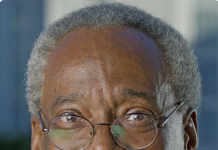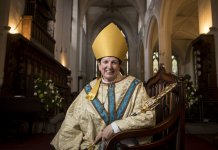Who is speaking for the children?
The Anglican Church of Southern Africa wishes to join its voice to that of the South African Human Rights Commission and others, in arguing for the continued opening and operating of as many of the country’s schools as possible.
We hear that teacher unions are meeting the Minister of Basic Education to press for the closure of the schools; the spokesman of one such is on record as saying, ‘we know what strong method we can use to ensure that we save the lives of learners, teachers and the lives of the community’.
But is this the time for arm-wrestling between the unions and their employers?
We ask: who speaks for the children in these meetings?
Note that:
-Science increasingly shows that children are not super-spreaders of the virus; children should not be stigmatised for what adults are bringing into the schools and spreading.
-Minister Motshekga was correct when she said ‘schools are good for children’; the discourse sometimes sounds as if children who are not in school are sitting in safe suburban homes with food, care and home schooling. But the bulk of this country’s children, if not in school, are vulnerable to all kinds of danger in the streets – including serious infections. If these children have parents surviving, they will now have returned to work (in hazardous taxis) to bring home some income. These parents are not sitting in the house, protecting, feeding and online schooling their children; they are busy surviving. These parents have a right to expect society and its educators to create a safe space for their children during the day while they work. We expect that of our educators.
-Of course schools must be made as safe as possible and many of the disgraceful backlogs in this regard now need to be faced – with toilets, water, roofs and the rest. But it is not for educators, especially in time of national disaster, to fold their hands and wait for someone else to do it all. They need to be modelling responsibility and finding ways to make the school system work, not to make it seize up.
-While it is true that the deadlines with the curriculum are not sacred and the country can well use 2021 flexibly to ensure that essential learning is covered, many children are at the stage of acquiring the basic building blocks of learning, and schools should enable that wherever possible; sometimes what is lost in a crisis is never recovered, and we already have enough of that cumulative damage in our population.
-The emotional and mental health effects of being out of school are accumulating alarmingly in this country’s children; they need to be back in the process of socialisation and professionally supervised development. Educators are good at this and should not be intimidated into deserting their responsibility.
-9 million children in South Africa depend on school feeding for their basic health. In this week’s Nids-Cram report, 47% of households reported running out of money for food in April and 8% of households with children reported child hunger lasting more than 3 days in the past week. In our context, to cut school feeding is to abandon the nation’s children to immediate distress and the long-term effects of malnutrition.
Even in this time of disaster, the rights of child citizens in terms of section 29 (1) of the Bill of Rights cannot be lightly suspended.
This constitutional imperative, and her conviction that schools are good for children, must continue to guide Minister Motshekga’s decisions. We urge her
-1: to ensure that all children can continue to access functional schools;
-2: to ensure that any unavoidable interruptions because of infection or essential maintenance are kept to a minimum; and
-3: to resist pressure for additional closures which are pushed in the interests of employees rather than children.
Who is speaking for the children? Bana pele!
A statement prepared by the Anglican Board of Education, chaired by Bishop Emeritus Peter Lee.










